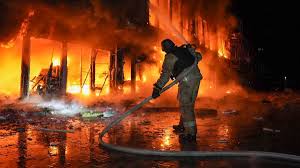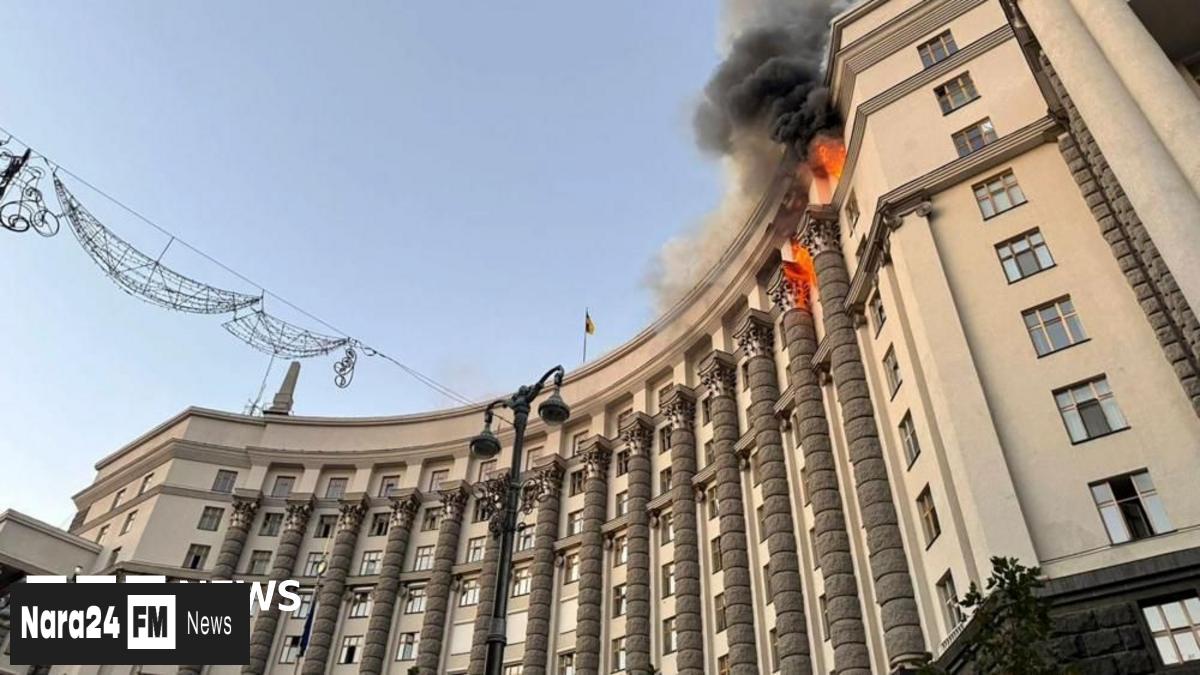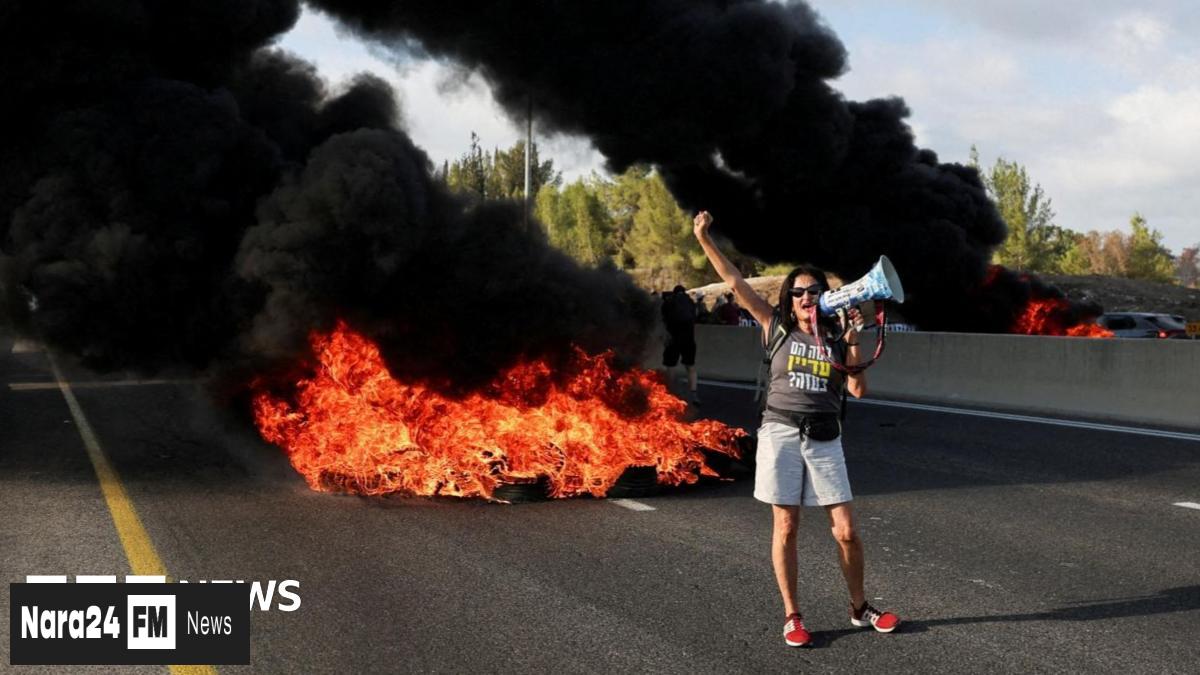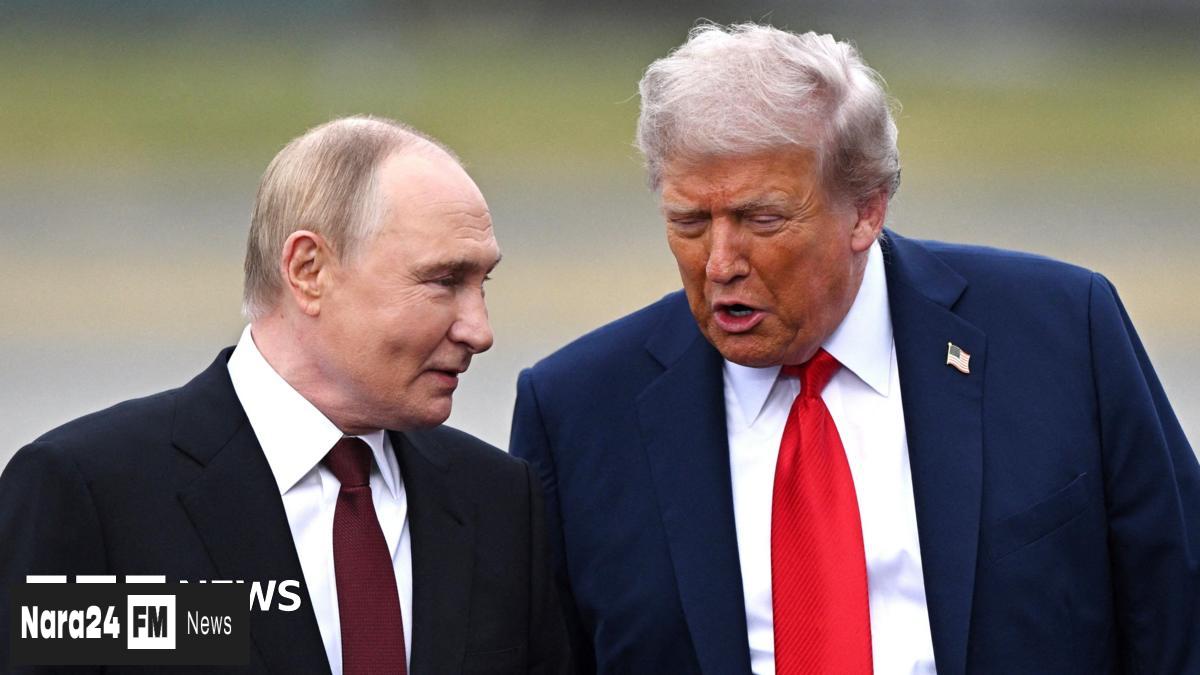Ukrainian cities faced renewed aerial bombardment early Tuesday as Russian forces launched coordinated drone strikes against civilian infrastructure, resulting in at least one fatality and multiple injuries. The attacks intensified hostilities despite ongoing prisoner exchange negotiations between the warring nations.
In the southern port city of Odesa, regional governor Oleg Kiper confirmed a direct hit on healthcare facilities including a maternity ward. "The assault damaged residential buildings and critical medical infrastructure," Kiper stated via Telegram, noting that one missile strike claimed the life of a 59-year-old man and left four others wounded. Medical staff successfully evacuated patients before impact, though ambulances sustained significant damage.
Nearly 300 kilometers north in Kyiv, Mayor Vitali Klitschko reported simultaneous drone assaults across four districts just after midnight. Emergency services responded to multiple impact sites where falling debris ignited fires in residential structures and warehouse facilities. "The massive attack on the capital continues," Klitschko warned citizens, urging residents to remain in shelters as air raid sirens echoed through the city.
Context of Escalation
Tuesday's aggression follows Russia's largest single drone offensive against Ukraine on Monday, which Moscow framed as retaliation for Kyiv's "Operation Spider's Web" - a covert June 1st strike targeting Russian airbases. That operation reportedly prompted a phone conversation between U.S. President Donald Trump and Vladimir Putin, during which the Russian leader vowed to respond "very strongly" to Ukrainian incursions.
Air raid alerts blanketed eastern conflict zones including Donetsk, Luhansk, and Kharkiv regions during the latest assault, according to Ukraine's air defense tracking systems. Timur Tkachenko, head of Kyiv's military administration, described the capital's bombardment as a coordinated wave targeting multiple districts at once.
Humanitarian Dimensions
The violence unfolds amid delicate prisoner exchange proceedings initiated Monday. Ukrainian President Volodymyr Zelensky characterized the swap as a "complicated, multi-stage process" prioritizing repatriation of severely wounded soldiers, personnel under age 25, and approximately 12,000 sets of remains. This diplomatic effort marks a rare point of negotiation in a conflict that has claimed tens of thousands of lives since Russia's full-scale invasion commenced in February 2022.
Civilian infrastructure continues bearing the brunt of recent attacks, with Tuesday's Odesa strike representing at least the fourth assault on medical facilities in the region this year. Humanitarian organizations have repeatedly condemned such targeting as violations of international law.
As emergency crews extinguish blazes and clear debris in affected cities, Ukrainian officials anticipate further aerial threats. The attacks demonstrate Moscow's capacity to sustain long-range strikes despite Western sanctions and military aid to Ukraine. With no immediate ceasefire prospects, civilians remain caught in a deadly pattern of retaliation that shows no regard for hospitals, homes, or ongoing diplomatic processes.








Comments (0)
Leave a Comment
Be the first to comment on this article!